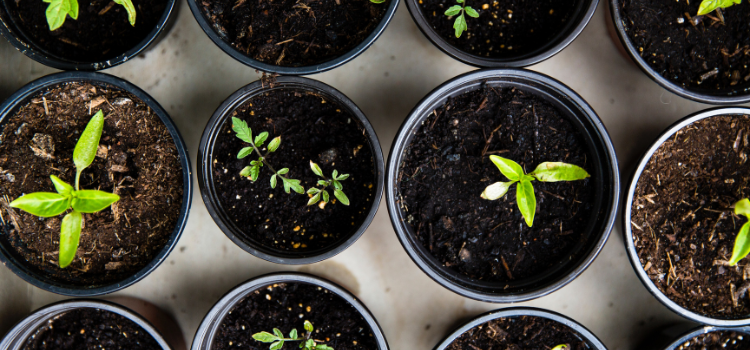What is a smart garden?
What is a smart garden? A smart garden is a small indoor vegetable/herb garden that is controlled and enhanced with computers and electronic devices. The effectiveness of a smart garden is attained automation. For instance, it alerts the user when to add nutrients and manages its lighting. This is significant for saving time, money, and the environment.
Article Summary
- How does smart gardening work?
- What are the features of a smart garden?
- Benefits of a smart garden
- Reasons to hire a landscaper

How Does Smart Gardening Work?
Smart gardening is a method engineered in a garden unit and requires low human maintenance and skills compared to how gardening is carried out on a typical landscape.
Using a smart garden is not complex as it may sound. In fact, it’s more simplified than the conventional gardening techniques. First, you plant/sow your seeds, add water, and plug in the unit to power. Then the smart unit takes care of other practices such as watering, fertilising, and maintaining optimum heat levels.
For this reason, more people in the urban areas have significantly adopted this method of farming since it’s hassle-free due to automation. In addition, smart gardening has made indoor gardening more accessible.
What are the Features of a Smart Garden?
There are various manufacturers across the globe making smart garden units/kits. Therefore features may vary among units or models. However, there is a common feature they share.
They include the following:
Automated Watering
The automatic watering system requires you to fill water into the unit, and then the garden distributes the water evenly to all plants. The distribution uses capillary precision irrigation techniques across the smart gardening unit.
Automated Lighting
Lights are essential for the growth of plants. Therefore, smart gardening units are integrated with lights. Most of the latest models are fitted with LED lights since they are energy efficient and emit fewer UV rays.
A Gardening App
Most smart gardens are integrated with other systems; thus, an application is needed to enhance the operation remotely. They are essential for designing and controlling lighting. Additionally, they come with guides for various plants and their life cycles.
Smart Soil Sensors
Some smart garden units use a soil-based system; thus, a smart soil sensor is essential. It helps easily detect and optimise the different levels of soil components needed by a plant. They include moisture, fertiliser, and temperature.
Benefits of a Smart Garden
There are several benefits of installing a smart garden, including:
- Smart gardening ensures a plant is growing in the perfect amount of nutrients at the root levels.
- Through the help of an app, you can easily control the conditions plants need for optimum growth.
- You can grow plants on a smart gardening unit indoors and throughout the year.
- Automatic watering is more effective and doesn’t waste time.
- Plants get optimum light for growth.
Many of us are inexperienced gardeners. That's why it's a good idea to employ a professional landscaper to design your garden. Professionals know which plants are most suited to each area. They can also assist you with:
- Planting plants in optimal places for optimal growth
- Getting your soil ready
- Conservation of water
- Irrigation techniques
- Landscape design
A skilled landscaper can design a lovely and easy-to-maintain garden for you. If you try landscaping on your own, the results may not be the same if you lack their level of experience. Your garden will suffer, and you may wind up paying more for landscaper costs.
Reasons to Hire a Landscaper
Hiring a landscaper to redesign your yard, outdoor area or getting a smart garden may quickly improve the appearance of your home to yourself, your family, and your guests. Landscaping is a fantastic way to boost the value and curb appeal of your house, especially if you want to sell it. Well-designed landscaping may improve the value of your house by up to 15%. There are several landscape elements that might considerably raise the expenses.
Before choosing a landscaper for a smart garden project, ask them the following questions:
- Have you ever worked on a smart garden project?
- Can you provide any references?
- Are you covered by insurance?
- Do you have the necessary credentials and licences?
- Can you provide me with an estimated timetable and a written quote?
- Will you work on my project until it is completed?
Before you decide to employ a landscaper, examine the hourly rates of many landscapers. Consider getting multiple landscaper quotes to determine which works best for you.
Furthermore, it is always preferable to choose experience and expertise over a lower price. Choosing a less expensive and less skilled landscaper may result in future difficulties that will cost you more money in the long run.


